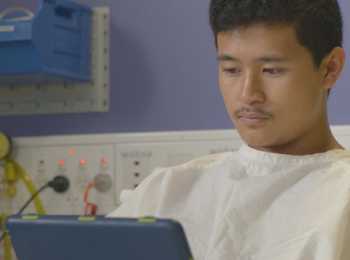Contents
Part 2
Emotional stuff
Becoming a carer.
A carer is someone who helps look after a person who is unwell. Your friend might find it rewarding to be a carer, but it can also be quite stressful, especially if their parent or sibling is weak or moody from treatment. It’s really important for carers to get away and take a break from the situation when they can.
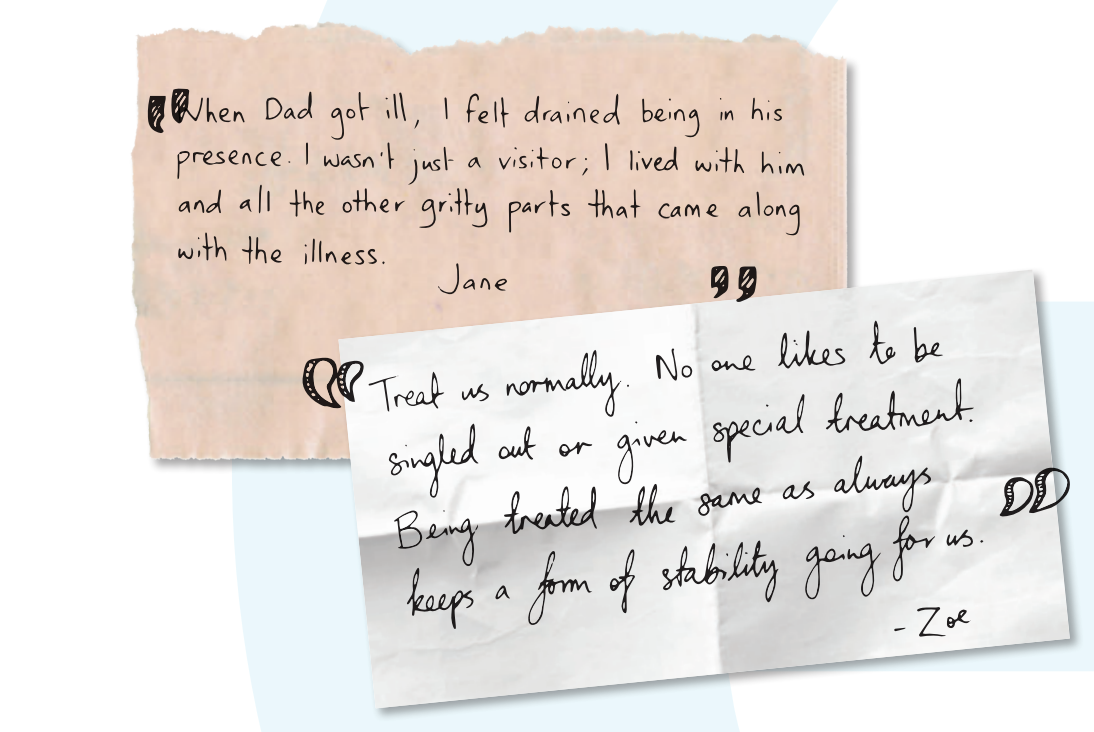
Being treated differently.
People can sometimes become overprotective of a young person who is going through hard times. But being smothered with attention or wrapped in cotton wool can be just as upsetting as having people keep their distance. Your friend is the same person and they will probably like to be treated as they always have.
Your friend might have all kinds of mixed feelings about what is happening in their family.
They might swing from one emotion to another or feel a confusing combo of things at once (it is possible to be happy AND miserable at the same time!)
At different times and for different reasons, your friend might feel:
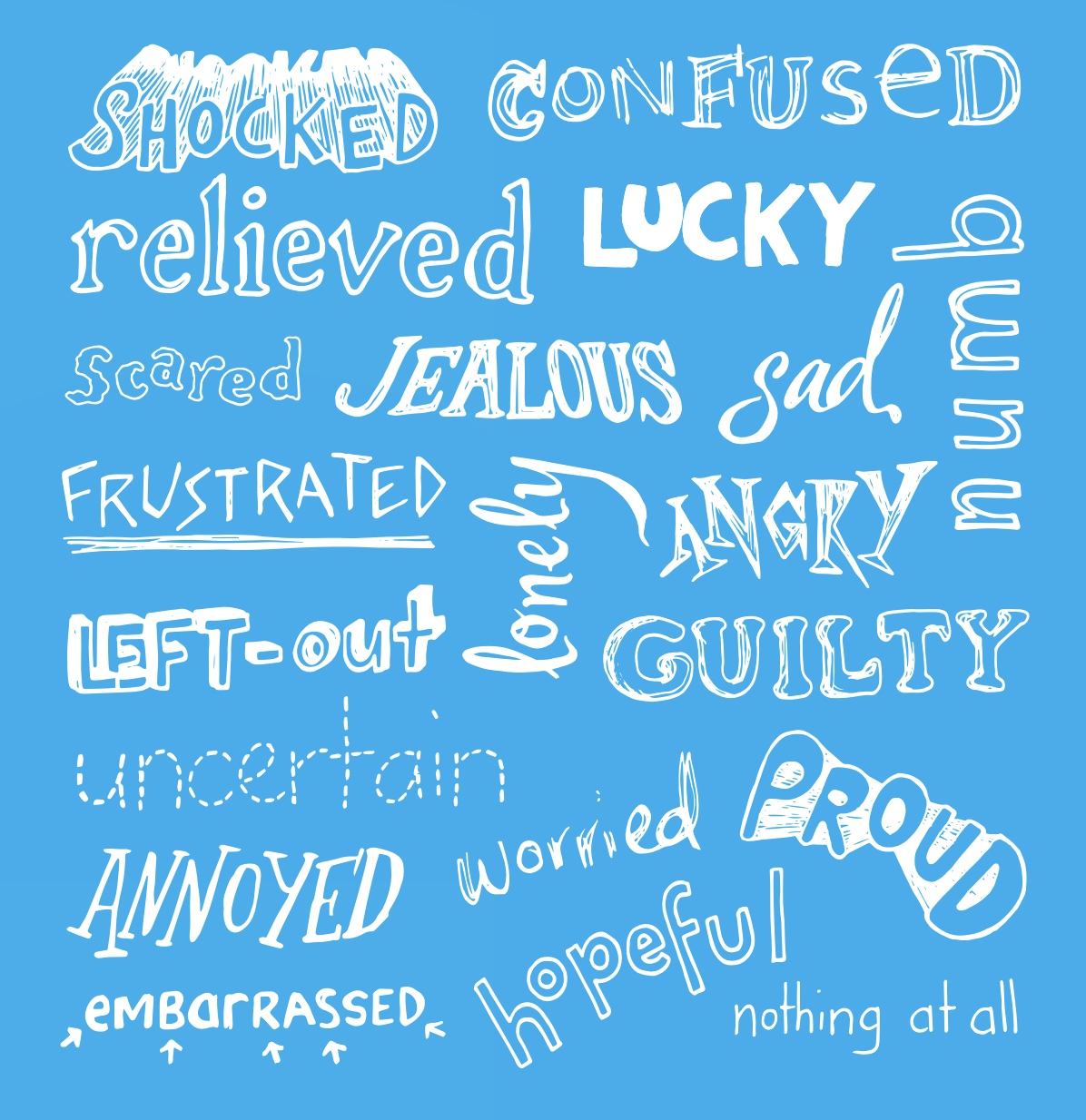
It can be exhausting to go through big emotional ups and downs. Sometimes your friend’s feelings might become so intense that they feel completely out of control.
They might also worry that their reaction isn’t normal and that people will think they are weird. They may not know anyone else who has been through a similar thing and be unsure about how they are supposed to act.
But the truth is that there is no ‘right’ or ‘wrong’ way to feel.
All feelings are normal and understandable. However your friend feels is right for them.
Try to be patient around your friend and forgive them if they get snappy and cranky at times.
If they try to hide their feelings because they are worried about what other people may think, their feelings can build up and become even harder to handle.
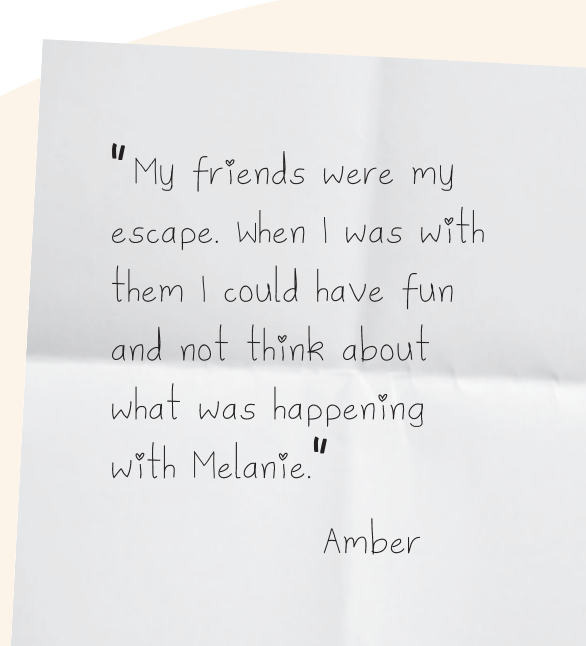
How can I help?
It can be super hard to understand what your friend is going through and to know what help they might need.
You may not even be sure whether they want special treatment at all or if you should just try to keep things as normal as possible.
Everyone is different and not everyone will want the same thing. Tell your friend that you want to help and ask them what they need.
Your friend might be feeling really lonely, but they might be afraid to ask for help because they don’t want to burden others with their problems.
So if you want to help, be really obvious. Make it clear that you will be there for them – whether they want to scream, cry, talk or just laugh and forget about it for a while.
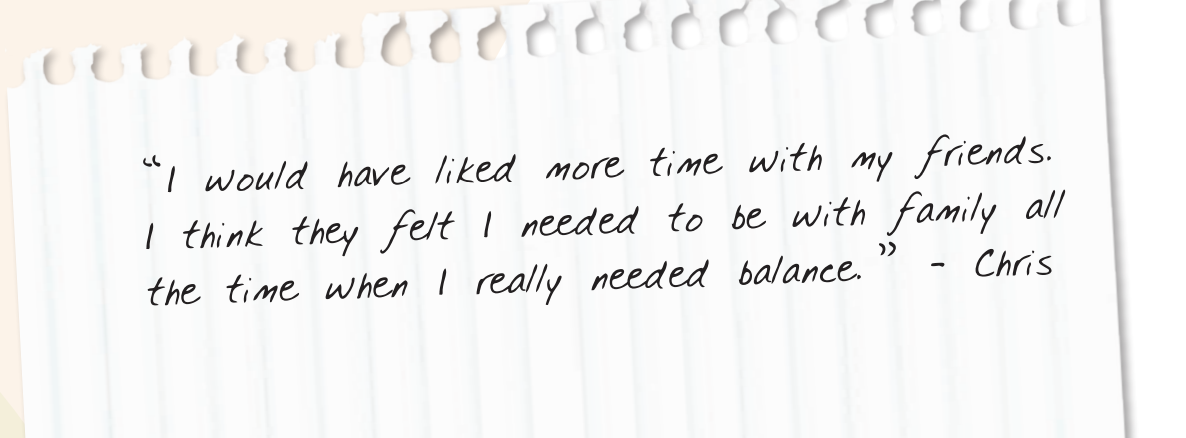
Here are some suggestions of things that might help:
Stay in touch.
Send messages, emails and texts, forward them links, write on their Facebook page. Just call to say “Hi” and let them know that you haven’t forgotten about them.
Ask about them.
Often people only ask how the patient is, forgetting to check in on the friend they are speaking to. Invite them places. The movies, your place, the gym, play sport, get coffee or any other awesome distraction away from Cancerville.
Gifts.
Who doesn’t love an out-of-the-blue chocolate bar? Or any little thing that will let them know you’re thinking of them - a magazine, some TV shows, a new music playlist…
Offer to help in specific ways.
Don’t wait for your friend to ask for help, they probably won’t.
Suggest practical things you could do, like bringing their assignments home from school, giving them lifts or helping run errands. Read stories of other people going through a similar thing. There are heaps of stories from young people who have a parent or sibling with cancer at nowwhat.org.au.
Encourage them to talk to a professional.
Counsellors, psychologists and social workers are trained to help people understand their feelings and find solutions to their problems. A family doctor, teacher, nurse or chaplain will be able to help you find one. Canteen offers free counselling to people aged 12-24 who have a parent with cancer.
Call a helpline.
If either you or your friend need to speak to someone right now, about anything at all, call Kids Helpline on 1800 55 1800 or LifeLine on 13 11 14.
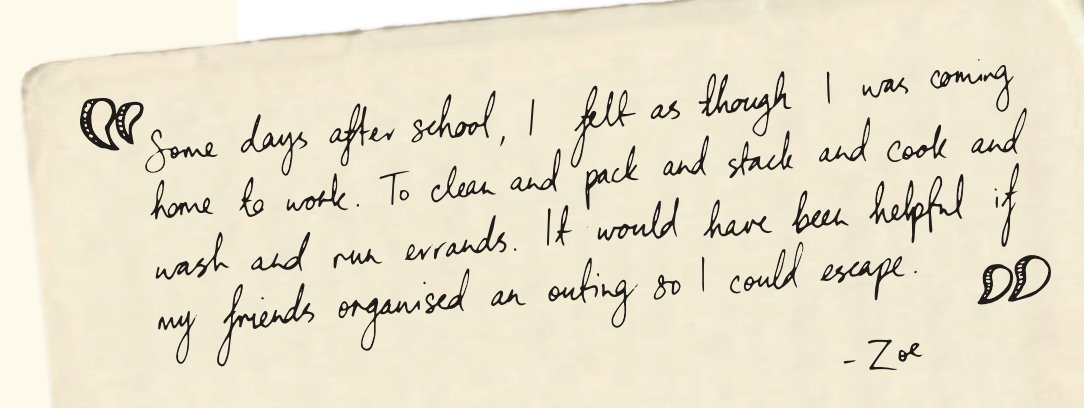
Talking to your friend
Hands up who’s not that great at knowing exactly the right thing to say at the right time? Right, most people. And it can be extra hard to talk to someone who has a family member with cancer.
You might worry that:
“I don’t know if I should bring up cancer… or just talk about anything EXCEPT cancer?”
“What if I say the wrong thing and make them feel worse?”
“I don’t want to call in case I’m interrupting important family time.”
“I want to tell them about this thing that happened today, but my life seems so boring and unimportant compared to theirs now.”
Everyone is new at this and these kinds of thoughts are common. But the trick is to not let your fear of saying the wrong thing stop you from saying anything at all. Don’t worry too much about upsetting your friend. Even if you say something stupid, they are still your friend and they’ll get over it!
Why talking can help. It can be scary as anything to talk to friends about your personal thoughts and feelings. But most young people with cancer in their life find that it really does help to talk. You don’t always need to know what to say. Your friend might just find it a relief to get things off their chest.
Here are some other things to think about:
- Not talking about difficult stuff doesn’t make it go away. Little worries can grow into big fears and stresses when they tumble around inside your head.
- Putting feelings and worries into words can make them easier to understand and seem easier to handle.
- Your friend might feel isolated and lonely if they can’t share what is happening.

What should I say?
Tips for talking (from young people who have a parent or sibling with cancer).
- Sometimes I want to talk about it, sometimes I really don’t want to talk about it. Just make it clear you’re there to listen if I do.
- Just check in and say “How are you going?” sometimes, then I can talk about how I feel if I want to (or not if I don’t).
- I’d rather hear you say, “I don’t know what to say” than something you don’t mean, or for you to avoid me altogether.
- Please don’t always wait for me to bring it up. I’m worried you’re sick of hearing about it.
- Don’t focus on the cancer…
- Or ignore it either.
- Please don’t bug me for the gory details…
- Or make jokes about how my parent or sibling looks or acts now.
- I know you can’t fix this, I don’t expect you to provide advice.
- You don’t have to put on a brave face. You can let me know that you find this hard too.
- We don’t always have to talk about serious stuff. I want to talk about normal things and have fun sometimes too.
- Please don’t be offended if I don’t feel like talking or if I talk to someone else.
Tips for listening. If your friend does want to talk:
- Don’t change the topic or interrupt.
- Don’t judge or try to change their feelings.
- Reassure them that whatever they feel is normal and understandable.
- Show you can relate to their feelings by saying things like, “That sounds really hard”.
- Ask questions to show you’re interested. • Don’t fill in the silent spaces, it’s OK to just be quiet together.
- Don’t jump in with your own experiences of illness or grief.
- Keep what they say private, unless they ask you directly to tell someone else.
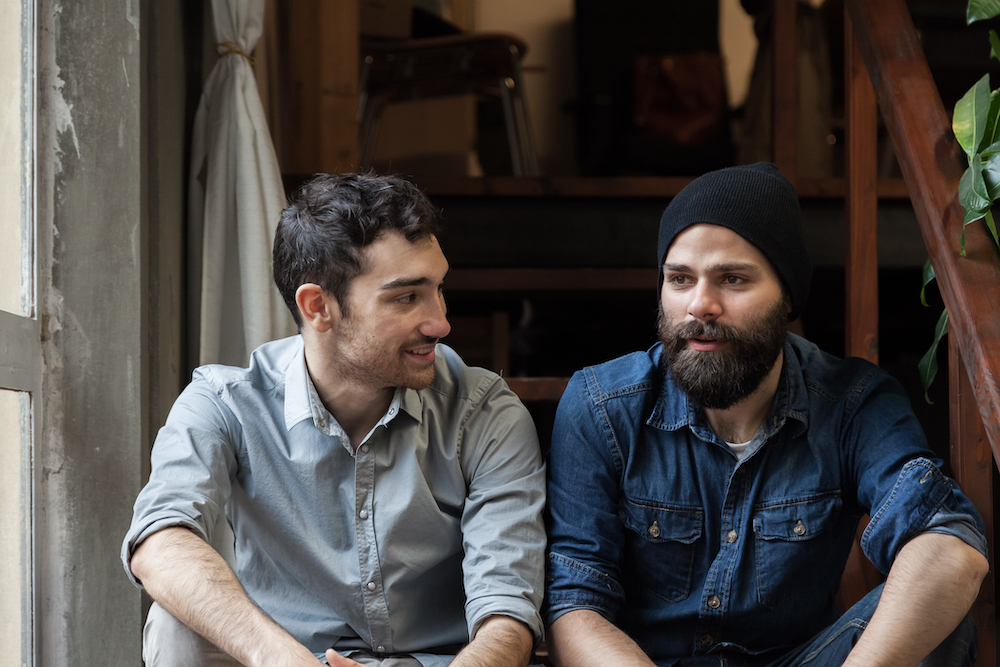
What should I not say?
Oops, that came out wrong! Despite our best intentions, some of the things we say when we are trying to be helpful can be taken in a different way by someone who is stressed and upset.
Best to avoid:
- “I know how you feel.” Even if you’ve been through a really similar experience, your friend is the only person who really knows how they feel.
- “Don’t worry. She/He’ll be fine.” Cancer is unpredictable and if your friend feels sad or negative or afraid, that’s OK.
- “Everything happens for a reason.” There’s no reason why anyone gets cancer. Don’t put pressure on your friend to find some greater significance in their experience.
- “You’re so brave/You’re such an inspiration.” You don’t have to put your friend on a pedestal and make them feel like they have to be perfect or hide how weak and scared they really feel.
- “Stay positive. My grandma was given a week to live and she’s still here twenty years later...” It doesn’t always help to compare different experiences. Cancer is different every single time.
- “It could be worse.” Their loved one has a serious illness. It is a big deal and they have a right to be freaked out.
- Just be yourself and go with what feels right. We all make mistakes, so don’t beat yourself up about the things you shouldn’t have said or could have done better.

Further down the track
Often people get heaps of support at the beginning of a crisis, but later on it can feel like people have forgotten about it or think that they should be ‘over it’ by now. Cancer can go on for a really long time and its effects can linger even when treatment is finished. When treatment ends. When your friend’s parent or sibling finally finishes cancer treatment (yay!), it’s easy to think that everything’s over and life will snap back to normal. But ‘normal’ may not look exactly the way it did before.
A trip to Planet Cancer is massive and it might have changed your friend and their family in some ways…
- There might be lasting physical or emotional changes to their parent or sibling that will never go away.
- Family roles and relationships might have changed.
- Your friend may have had to rethink their plans or dreams for the future.
- Their outlook on life may be different.
- Even their identity and sense of who they are might be different.
- There could be ongoing uncertainty and fear that the cancer will come back.
- They might continue to feel bad about the way they behaved or things they said when their family member was sick.

Video
5 tips to support a friend or loved one dealing with a cancer diagnosis
When a friend or loved one receives a cancer diagnosis in their family, you need to know what to expect and how best to support them. Here are 5 practical tips from our video series to help you do just that.

















